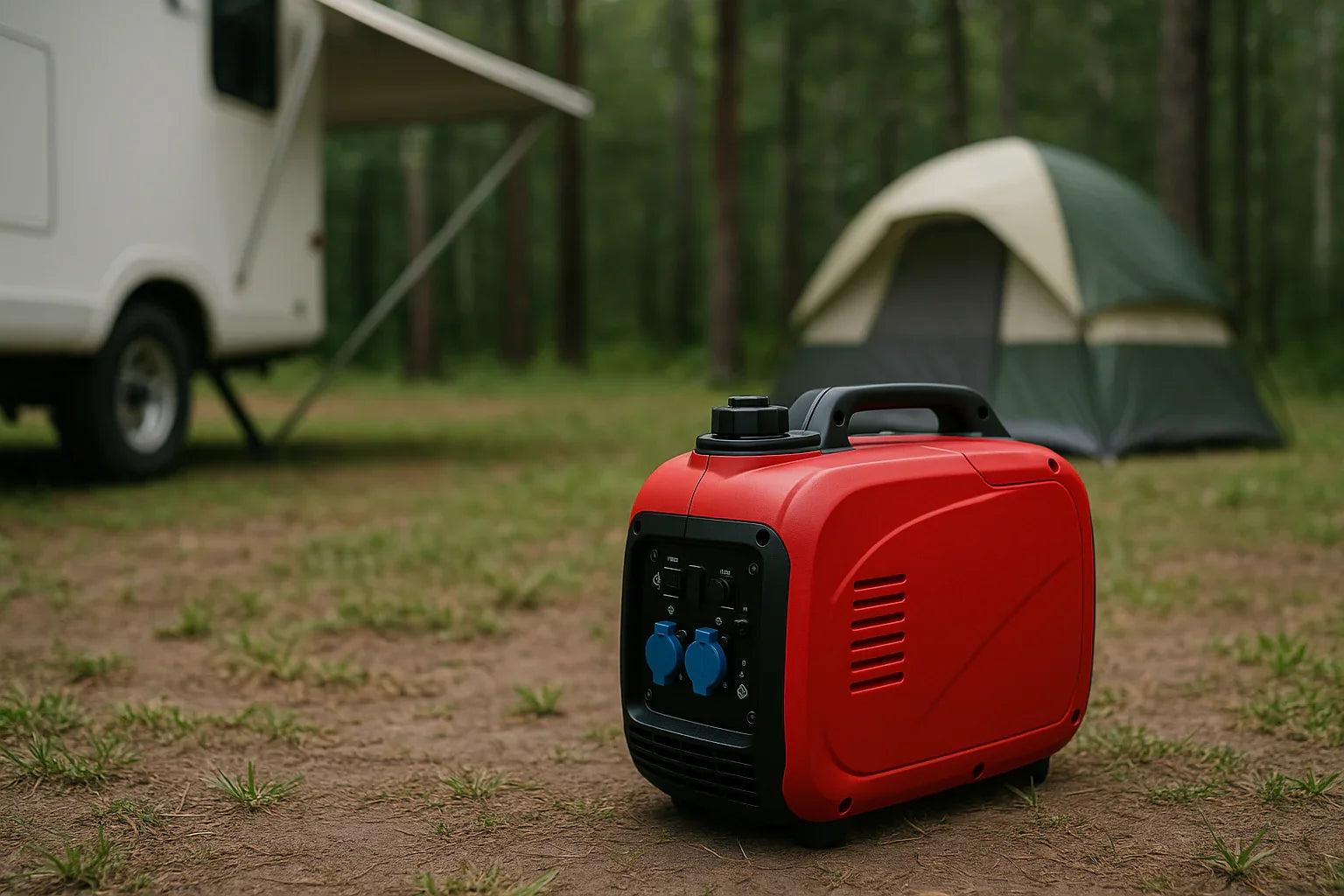Weekend camping trips or RV adventures are all about escaping the chaos—but staying powered matters more than ever. From lighting and fans to coffee makers and phones, your devices need energy. The question is: can a quiet inverter generator handle it all?
This article breaks down a realistic two-day scenario and evaluates whether a small quiet generator can keep your weekend running smoothly—without disturbing the peace.
What Is a Quiet Inverter Generator?
A portable generator with inverter technology is a compact power source that delivers clean, stable electricity with minimal noise. Most models operate between 50–60 decibels, making them ideal for campgrounds, RV parks, and residential use.
Unlike traditional generators, inverter models automatically adjust engine speed based on the load. This improves fuel efficiency and reduces wear and tear.
Scenario Overview: Weekend Off-Grid
Let’s simulate a Friday night to Sunday evening camping trip with two adults.
Expected Power Use Categories:
Charging phones and laptops
Coffee maker (2× mornings)
LED lights (6–8 hours/night)
Portable fan (4 hours/day)
Small cooler or mini fridge
Induction cooktop or hot plate (short use)
Occasional use of power tools or speakers
Day 1: Friday Night Setup + Overnight Power
| Device | Watts | Hours | Total Wh |
| LED string lights | 40W | 6 | 240 Wh |
| Phone charging (2x) | 10W | 4 | 40 Wh |
| Portable fan | 50W | 4 | 200 Wh |
| Mini fridge (cycle) | 60W | 6 | 360 Wh |
| Total | 840 Wh |
At 840Wh, a 2000W quiet generator would run for about 6–10 hours using Eco mode, depending on tank size and efficiency.
Day 2: Full-Day Activity Load
| Device | Watts | Hours | Total Wh |
| Coffee maker | 600W | 0.25 | 150 Wh |
| LED lights | 40W | 8 | 320 Wh |
| Laptop + phone charging | 50W | 4 | 200 Wh |
| Mini fridge (cycle) | 60W | 8 | 480 Wh |
| Bluetooth speaker | 20W | 3 | 60 Wh |
| Induction hot plate | 1000W | 0.3 | 300 Wh |
| Total | 1510 Wh |
This pushes power use past 1.5kWh. A 2200–2500W low-noise portable unit with 1-gallon capacity would typically last 7–9 hours under variable load.
Day 3: Half-Day Wrap-Up
| Device | Watts | Hours | Total Wh |
| Coffee maker | 600W | 0.25 | 150 Wh |
| Lights | 40W | 2 | 80 Wh |
| Fan | 50W | 2 | 100 Wh |
| Fridge | 60W | 4 | 240 Wh |
| Total | 570 Wh |
Total Weekend Consumption Estimate
Adding all three days:
Evening Setup (Day 1): 840 Wh
Full Usage Day (Day 2): 1510 Wh
Wrap-Up Morning (Day 3): 570 Wh
Total: ~2920 Wh (approx. 2.9 kWh)
A 2200–2500W quiet inverter generator with a 1-gallon tank (Eco mode enabled) could handle this comfortably with 2–3 refuels, especially if usage is staggered.
Fuel Efficiency Comparison
| Generator Model | Tank Size | Runtime (50% Load) | Fuel/Hour (gal) | Est. Cost (2 days) |
| Honda EU2200i | 0.95 gal | 8.1 hrs | ~0.12 gal/hr | ~$8–10 USD |
| WEN 56203i | 1.0 gal | 7 hrs | ~0.14 gal/hr | ~$10 USD |
| Erayak 2400P | 1.1 gal | 9–10 hrs (Eco) | ~0.11 gal/hr | ~$6–8 USD |
(Source: Manufacturer specs + Consumer Reports)
What About Battery Power Stations?
Battery stations are silent but limited. Most high-capacity lithium stations offer 1000–2000Wh per charge. That only covers one day of usage unless paired with solar panels or recharged by a generator.
Verdict: For multi-day off-grid stays, battery stations may need backup from a quiet generator.
Tips to Stretch Runtime
Use LED lights and low-wattage appliances
Schedule high-load tasks (like coffee) during generator’s active hours
Use Eco mode unless running a heavy load
Pre-chill food to reduce fridge draw
Charge power banks during generator run time
Conclusion: Is It Enough?
Yes—a properly sized quiet inverter generator (2000–2500W) can easily support a full weekend off-grid. It keeps the essentials powered without disrupting your environment.
Choose a model with a decent tank, Eco mode, and pure sine wave output. With fuel efficiency and low noise, it’s a reliable companion for any outdoor adventure.



